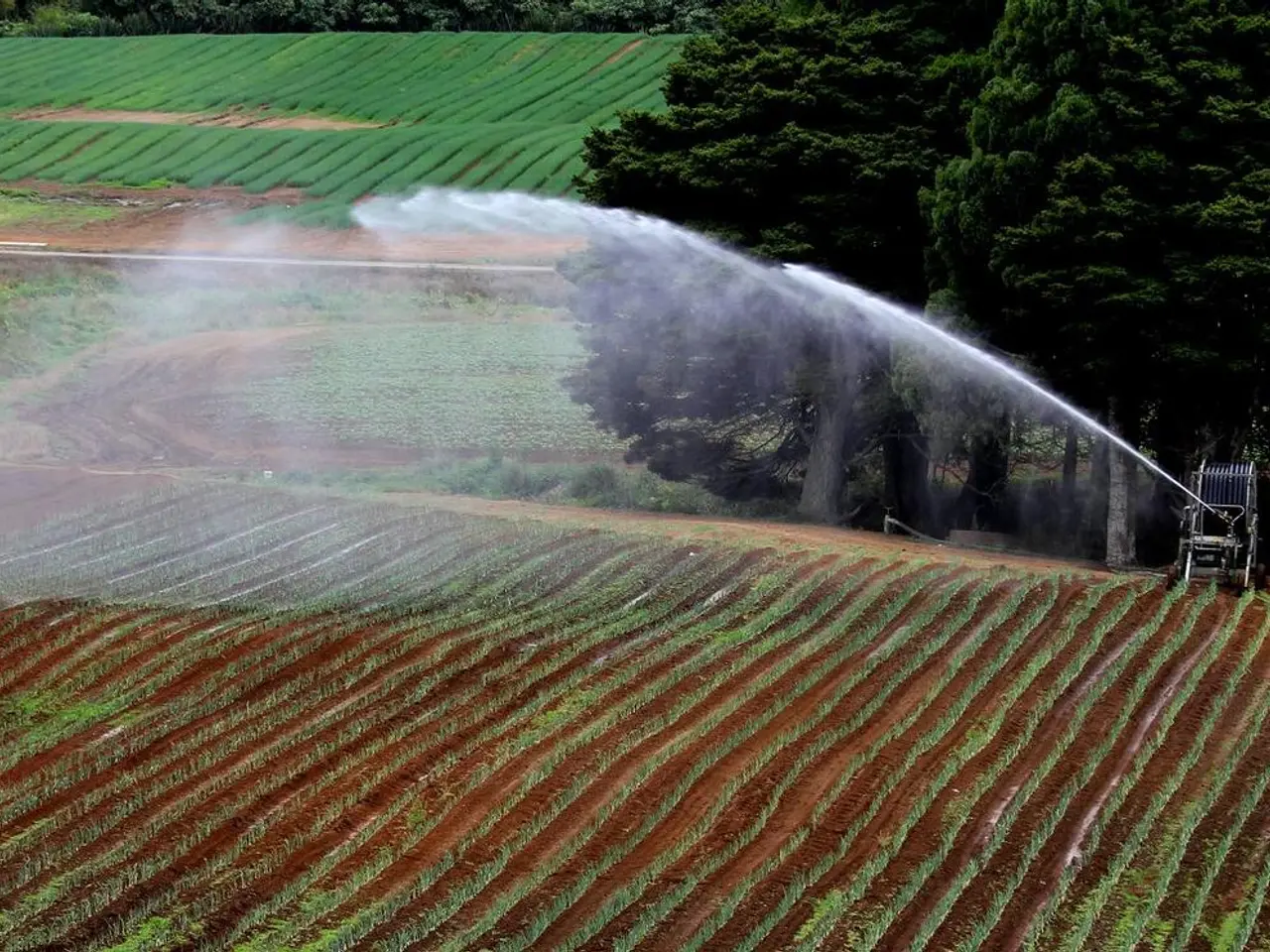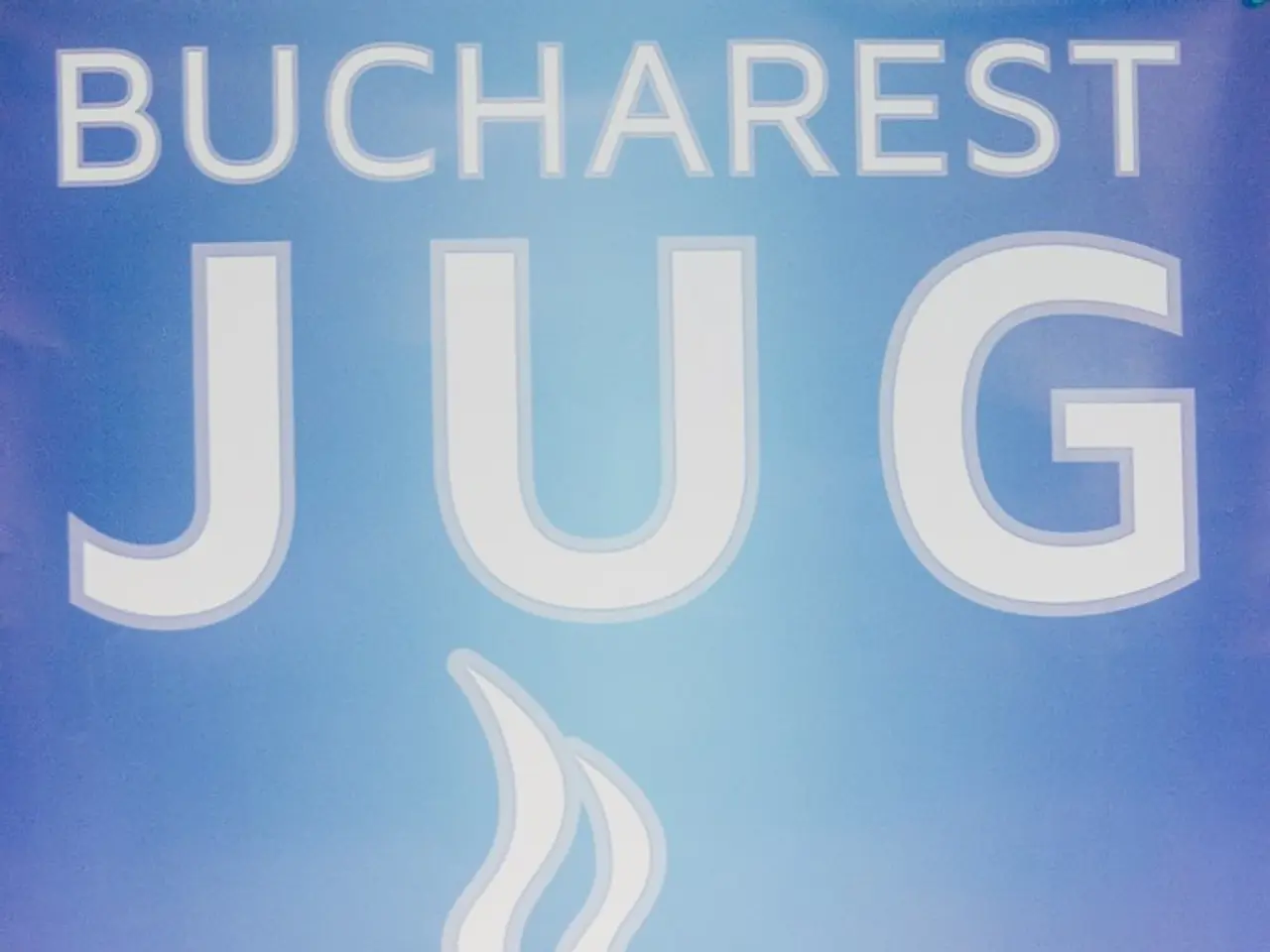EU's Agriculture Minister anticipates enhancements in ongoing Reform blueprints
The European Union is currently working on a significant reform of the Common Agricultural Policy (CAP), aiming for simplification, flexibility, and future orientation for the period after 2027. Known as the CAP simplification package or Omnibus on Agriculture, the initiative seeks to reduce bureaucracy, simplify payment systems, ease environmental conditionality, and make support more accessible for farms affected by climate change and severe weather.
The reform, however, comes with major budget cuts of 15% to 25% in direct payments to farmers, raising concerns about the viability of farms and food security. German Federal Agriculture Minister Alois Rainer and Brandenburg's Minister President Dietmar Woidke (SPD) have expressed their reservations about these cuts.
During a visit to the Brandenburg organic farm "Ökodorf" Brodowin, Minister Rainer expressed his concern about "cannibalization of funds" and emphasized the importance of the CAP remaining an independent policy area. Woidke, on the other hand, highlighted the need for investment security and the importance of restoring trust in farmers without overwhelming them with bureaucracy.
The proposed cuts and caps on direct payments by the EU Commission, according to Woidke, would put the future viability of agricultural businesses at risk. The European Commission plans to merge the budget for agricultural policy with budgets for other policy areas, a move that has been met with criticism from agricultural associations and farming lobbies, including the German Farmers' Association, who describe the possible funding cuts as an attack on rural areas.
Minister Rainer, however, is optimistic about potential improvements to the controversial reform plans of the EU Commission regarding agricultural financing. He supports the CAP remaining a "stability anchor, a location factor, and a guarantee of homeland." Both Rainer and Woidke prioritize streamlining bureaucracy in agriculture.
The ongoing negotiations will be critical for how the final reforms balance simplification, environmental goals, and financial support. Reactions from German stakeholders are expected to be cautious but engaged, aiming to protect farmers' interests while ensuring the sustainability and economic viability of agriculture in the country.
- The European Commission's plan to merge the budget for agricultural policy with other policy areas has been met with criticism from agricultural associations and farming lobbies, including the German Farmers' Association, who view the potential funding cuts as an attack on rural areas.
- German Federal Agriculture Minister Alois Rainer supports the Common Agricultural Policy (CAP) remaining a "stability anchor, a location factor, and a guarantee of homeland," and is optimistic about potential improvements to the reform plans regarding agricultural financing.
- During the negotiations for the final reforms of the Common Agricultural Policy, reactions from German stakeholders, like Minister Rainer and Brandenburg's Minister President Dietmar Woidke, are expected to be cautious but engaged, aiming to protect farmers' interests while ensuring the sustainability and economic viability of agriculture in the country.




